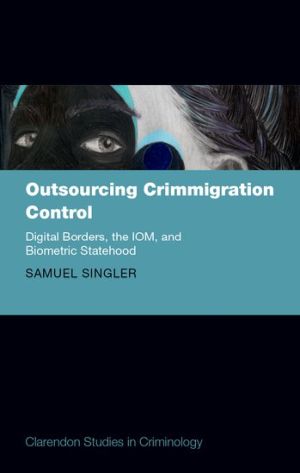
Digital technologies have reshaped the boundaries of criminal justice and border control, and the merger of these fields has resulted in technologically mediated practices of 'crimmigration control' on a global level. This book explores the role of the International Organization for Migration (IOM) and its Migration Information and Data Analysis System (MIDAS) in shaping these digital crimmigration control practices.
Outsourcing Crimmigration Control: Digital Borders, the IOM, and Biometric Statehood draws on interdisciplinary scholarship to develop a new theoretical framework for understanding the political effects of new surveillance technologies. Examining empirical data gathered through elite interviews, document analysis, and field observations in Abuja, this book reveals how the deployment of MIDAS in Nigeria was underpinned by political and epistemic postcolonial hierarchies between Global North states, the IOM, and Nigerian federal authorities. This technical system resulted in the emergence and expansion of historically unprecedented digital crimmigration control practices in Nigeria, which created new risks to human rights and justice.
Through this in-depth study, Samuel Singler advances the Southernization and decolonization of criminology, as well as the development of more just and equitable digital futures at the border. Outsourcing Crimmigration Control will be a vital read for students and academics in the fields of criminology, law, international relations, and sociology, as well as practitioners and civil society organizations working on border management, international humanitarian efforts, and criminal justice.